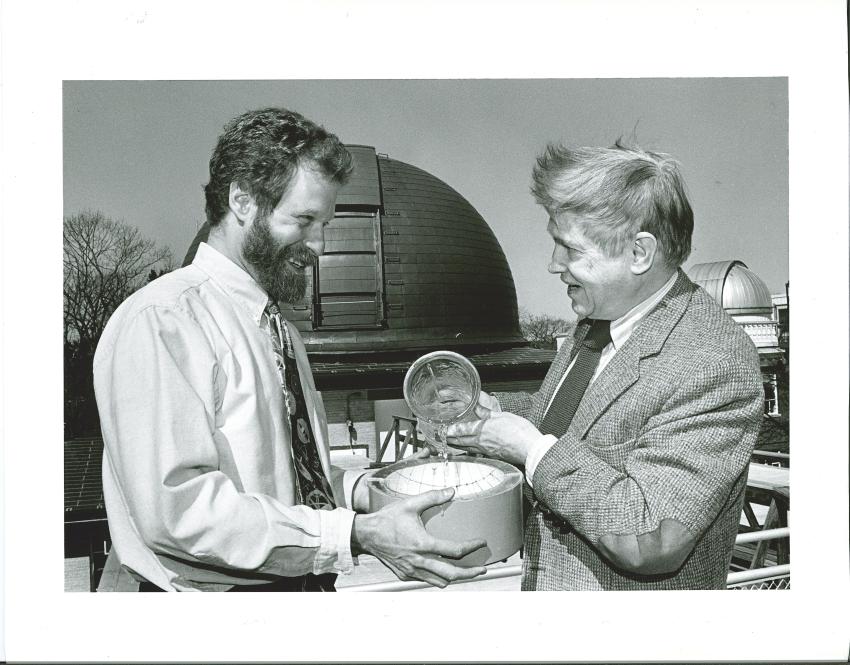The Royal Astronomical Society offers its condolences to the family, friends and colleagues of Professor Owen Gingerich, who has died at the age of 93.
Born in Iowa in the United States to a Mennonite Christian family, Gingerich grew up in Kansas. He attended Goshen College despite not having completed high school, and then moved to Harvard University where he completed his PhD under the supervision of Cecilia Payne-Gaposchkin.
Gingerich taught astronomy at Harvard and initially pursued research into stellar atmospheres, before focusing on the history of astronomy. He became a leading authority on Kepler, Galileo and Copernicus, carrying out a global census of the latter’s most famous work, De revolutionibus orbium coelestium (the Revolutions of the Heavenly Spheres), which in the sixteenth century re-introduced the idea of the Sun being at the centre of the Solar System.
Alongside this work, as a Christian Gingerich reflected on the interplay between science and religious faith. He argued for a universe created by God, but certainly believed in the evolution of life and a cosmos billions of years old. Related to this, he served as a trustee of the Templeton Foundation, which supports progress in religion and science.
Gingerich received awards including the Polish Order of Merit (recognising his work on Copernicus), the American Astronomical Society Doggett Prize, the Prix Jules Janssen of the Société astronomique de France, and the Trotter Prize.
RAS President Professor Mike Edmunds said:
“Owen Gingerich was both a good scientist and a wise historian. Many years ago I used his solar atmosphere models in my thesis work, and I later delighted in his monograph “The Book Nobody Read” about the appreciation (or lack of it!) of Copernicus’ de Revolutionibus. Always gracious and engaging in his conversations, he will be greatly missed.”


